
Harmonizing Health: Exploring Ayurvedic Wisdom for Diabetes Management at Ayur Wakeup, Alleppey
By Dr. Arun Radhesh R | February 24, 2024
Ayurvedic Diabetes Treatments and Their Remedies
In the realm of holistic health and wellness, Ayurveda stands out as an ancient healing system rooted in the profound wisdom of India. With its emphasis on balancing mind, body, and spirit, Ayurveda offers invaluable insights and solutions for managing various health conditions, including diabetes. In this comprehensive guide, we’ll delve into the role of Ayurveda in diabetes management, exploring the types of diabetes.
Ayurveda’s Journey in Tackling Diabetes – A Comprehensive Guide
Ayurveda, the science of life, views diabetes as a metabolic disorder resulting from an imbalance in the doshas (bio-energies) – primarily Vata and Kapha. According to Ayurvedic principles, diabetes (known as “Prameha”) occurs due to impaired digestion and metabolism, leading to elevated blood sugar levels and other associated complications. By addressing the root causes of diabetes and restoring balance to the body’s natural functions, Ayurveda offers holistic solutions for managing this chronic condition.
Decode the Diabetes Dilemma: Unveiling the Two Main Types!”
Type 1 Diabetes:
Also known as insulin-dependent diabetes, Type 1 diabetes occurs when the immune system attacks and destroys the insulin-producing beta cells in the pancreas, leading to insulin deficiency and elevated blood sugar levels.
Type 2 Diabetes:
Type 2 diabetes, the most common form of diabetes, occurs when the body becomes resistant to insulin or fails to produce enough insulin to regulate blood sugar levels effectively. This type of diabetes is often associated with lifestyle factors such as poor diet, lack of exercise, obesity, and genetic predisposition.
How to Reduce Diabetes by Ayurveda?
Ayurveda helps to reduce diabetes by focusing on diet, exercise, and lifestyle changes to balance the body. Ayurveda suggests a diet that includes fruits like amla (Indian gooseberry) and jamun (black plum) to help keep blood sugar in check. Regular practice of yoga is also an important part of the treatment, as it helps improve body functions and reduce stress. These changes work together to help the body use energy better and control blood sugar
Ayurveda and Diabetes:
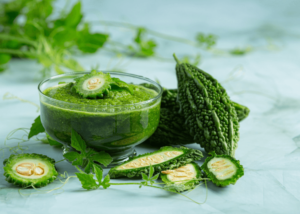
Bitter Melon (Karela)
A well-known fruit that is thought to act like insulin to reduce blood sugar levels.

Indian Gooseberry (Amla)
Rich in vitamin C and antioxidants, it helps the body’s cells use insulin better.
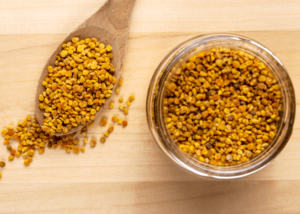
Fenugreek (Methi)
The seeds are high in fiber, which slows down how the body takes in carbs.
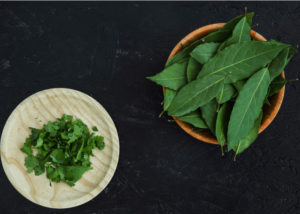
Gymnema (Gurmar)
An herb that reduces sugar cravings and lowers the amount of absorbed sugar.
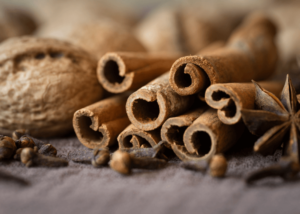
Cinnamon (Dalchini)
A common spice that is thought to improve the body’s sensitivity to insulin.
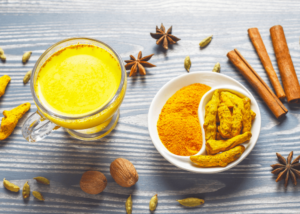
Turmeric (Haldi)
Its anti-inflammatory properties can help with insulin resistance and reduce blood sugar levels.
Ayurvedic Diet for Diabetes
Ayurvedic diet for diabetes (known as Madumeha) focuses on balancing the Kapha dosha. This is done by eating foods that are light, warm, and easy to digest, while avoiding foods that are heavy and sweet.
Foods to Eat (Kapha-Balancing)
- Vegetables: Bitter melon, leafy greens, radishes, cauliflower, and cabbage. These vegetables help to reduce sugar levels.
- Whole Grains: Old barley, millets, and brown rice are preferred. They are heavy and take longer to digest, which keeps blood sugar stable.
- Fruits: Amla (Indian gooseberry), jamun (black plum), and bitter fruits are good.
- Spices: Use spices like turmeric, cinnamon, black pepper, and ginger. They help improve digestion (Agni) and reduce Kapha.
- Lentils: Moong dal and other light lentils are good choices.
Foods to Avoid (Kapha-Increasing)
- Sweet and Sugary Foods: Avoid processed sugar, sweets, and pastries.
- Heavy Foods: Stay away from fried foods, heavy dairy products (like cheese), and cold, oily foods.
- Starchy Vegetables: Avoid new potatoes and sweet potatoes in large amounts.
- Excessive Fruit: Limit very sweet fruits like bananas and grapes.
Healthy Eating Habits
- Eat at regular times: This helps to keep your digestive fire strong.
- Eat moderate portions: Do not overeat, as this increases Kapha.
- Drink warm water: Drinking warm water throughout the day can help improve digestion.
Home Remedies for Diabetes Control
In Ayurveda,there’re lots of remedies which can help to reduce diabetes as part of a healthy lifestyle. Fenugreek seeds (methi) is a common remedy ; soaking them in water overnight and drinking the water in the morning is thought to help control blood sugar. Adding spices like turmeric and cinnamon to your daily food and drinks can also be helpful, as they are known to improve the body’s sensitivity to insulin. Another easy remedy is drinking water mixed with amla (Indian gooseberry) juice. These home remedies work by supporting digestion and helping to keep the body’s doshas in balance.
Ayurvedic Drinks to Control blood sugar and diabetes
- Water: Helps flush out extra sugar and keeps you hydrated. Add lemon or cucumber for flavor without sugar.
- Green Tea: Has good stuff (antioxidants) that may help your body use insulin better and lower blood sugar. Drink it plain.
- Cinnamon Tea: May help lower blood sugar when you haven’t eaten and make your body more sensitive to insulin. Just boil a cinnamon stick in water.
- Apple Cider Vinegar Drink: May lower blood sugar, especially after meals. Always mix it with water to protect your teeth and stomach.
- Bitter Gourd (Karela) Juice: Contains things like insulin that may help keep blood sugar normal.
- Aloe Vera Juice: Linked to lower blood sugar when fasting and better insulin use. Make sure it has no added sugar.
- Fenugreek Water: Soaking fenugreek seeds overnight makes water with lots of fiber. This can slow sugar from entering your blood and help your digestion.
- Low-Sugar Vegetable Juice: Made from green veggies like spinach, cucumber, and tomato. These have low sugar and high fiber, helping with sugar control.
- Herbal Teas (Chamomile, Hibiscus): May help lower blood sugar and keep your heart healthy. Choose teas without sugar or caffeine.
- Unsweetened Plant Milk: Milks like almond, soy, or oat milk have fewer carbs than regular milk. They are less likely to make blood sugar go up. Always check labels for hidden sugars.
How Yoga and Exercise Helps to Manage Diabetes
In Ayurveda, physical activity is very important for managing diabetes. Simple things like walking, swimming, or yoga can greatly improve health and blood sugar control. Yoga is especially helpful because it brings together body poses, breathing, and meditation.
Yoga helps to:
- Control blood sugar levels
- Lower stress
- Improve blood flow
- Help the pancreas work better
- Make your body more sensitive to insulin
The movements in yoga cure internal organs and lead to better eating habits
Here are some helpful yoga poses for people with diabetes:

Ayurveda for Diabetes Treatment:
Dietary Modifications:
Ayurvedic dietetics emphasizes the importance of balancing tastes (Rasas), qualities (Gunas), and energies (Virya) in the diet to support optimal digestion and metabolism. A diabetes-friendly diet may include whole grains, legumes, vegetables, fruits, lean proteins, and herbs with hypoglycemic properties such as bitter gourd, fenugreek, and cinnamon.
Lifestyle Changes:
Ayurveda emphasizes the importance of maintaining a healthy lifestyle to prevent and manage diabetes. This may include regular exercise, stress management techniques such as yoga and meditation, adequate sleep, and avoiding unhealthy habits such as smoking and excessive alcohol consumption.
Herbal Remedies:
Ayurvedic herbs and formulations have been used for centuries to support healthy blood sugar levels and promote overall well-being. Some commonly used herbs for diabetes include Gymnema (Gurmar), Bitter Melon (Karela), Indian Gooseberry (Amla), and Fenugreek (Methi). These herbs may be taken in the form of powders, tablets, or decoctions under the guidance of a qualified Ayurvedic practitioner.
Best Ayurveda for Diabetes Treatment
Ayurveda can control and cure diabetes through proven Ayurvedic treatment programs. The best ayurvedic remedies for diabetes include turmeric, gymnema or Gurmar, fenugreek or methi seeds, jamun, neem, tulsi, giloy, or guduchi. These are the best herbal remedies that can help control and reduce blood sugar or diabetes in our body.
Conclusion:
In conclusion, Ayurveda offers valuable insights and solutions for managing diabetes through its holistic approach to health and wellness. By addressing the root causes of diabetes, restoring balance to the body’s internal functions, and promoting overall well-being, Ayurvedic treatments provide a safe, effective, and sustainable approach to diabetes management. At Ayur Wakeup in Alleppey, Kerala, we invite you to explore the transformative power of Ayurvedic diabetes treatment and embark on a journey towards optimal health and vitality.


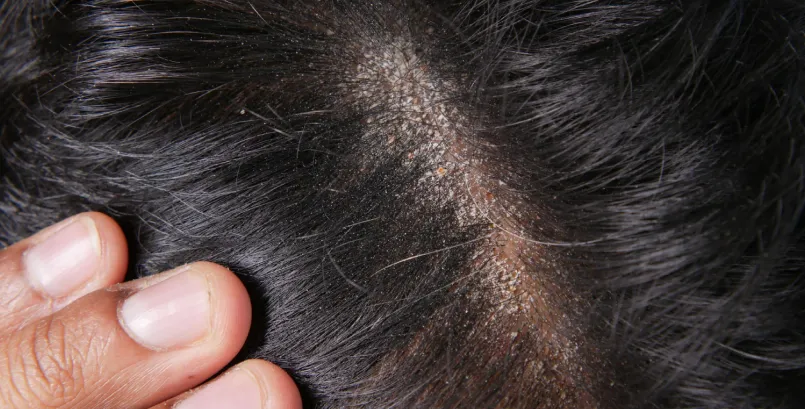
Fabricio Lara
Hola me gustaría tener mas información tengo diabetes tipo 2 y quiero curarme